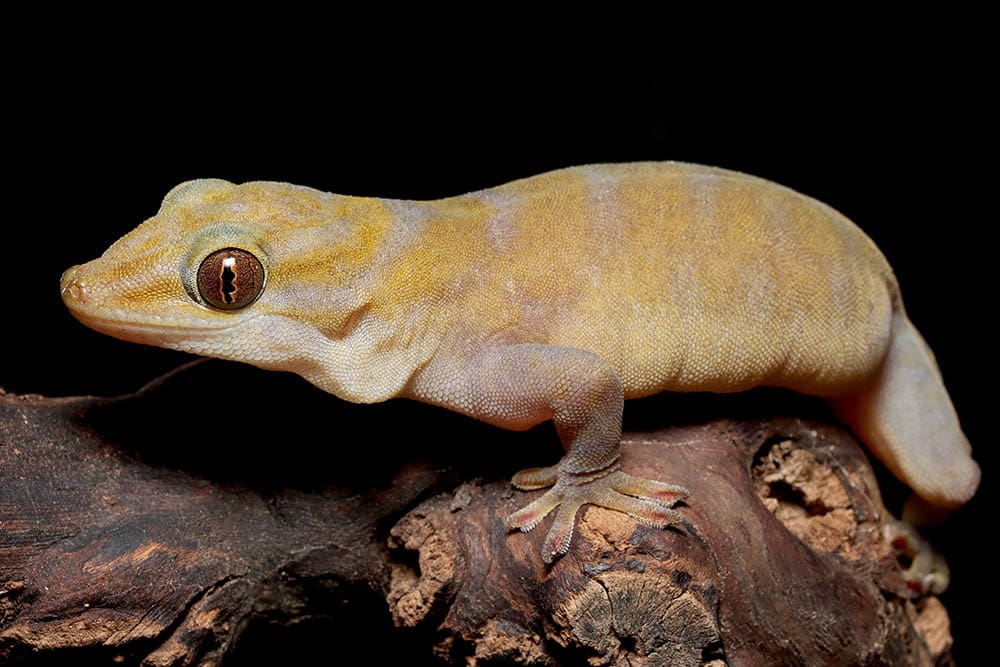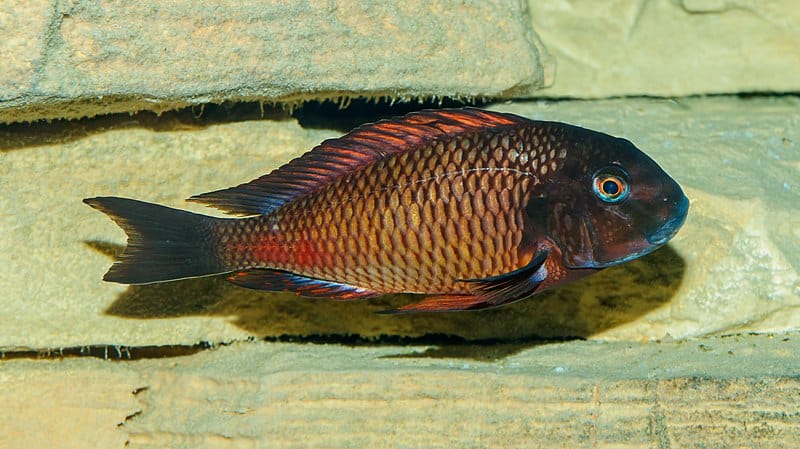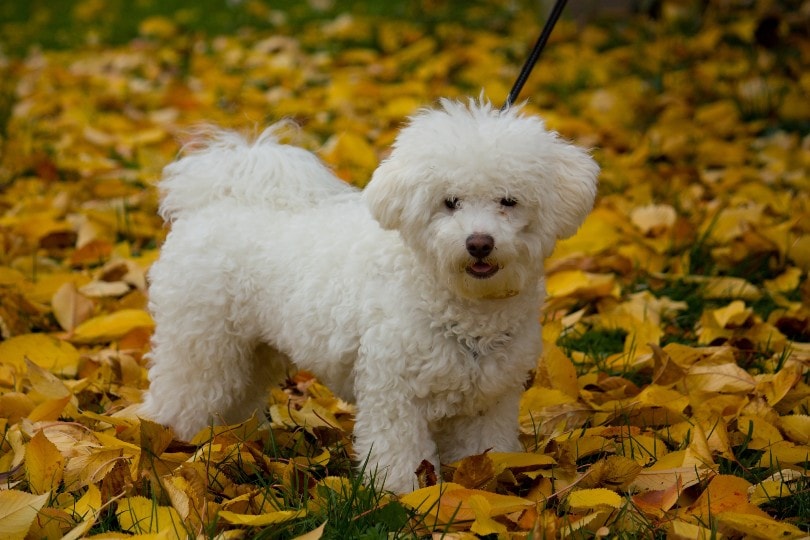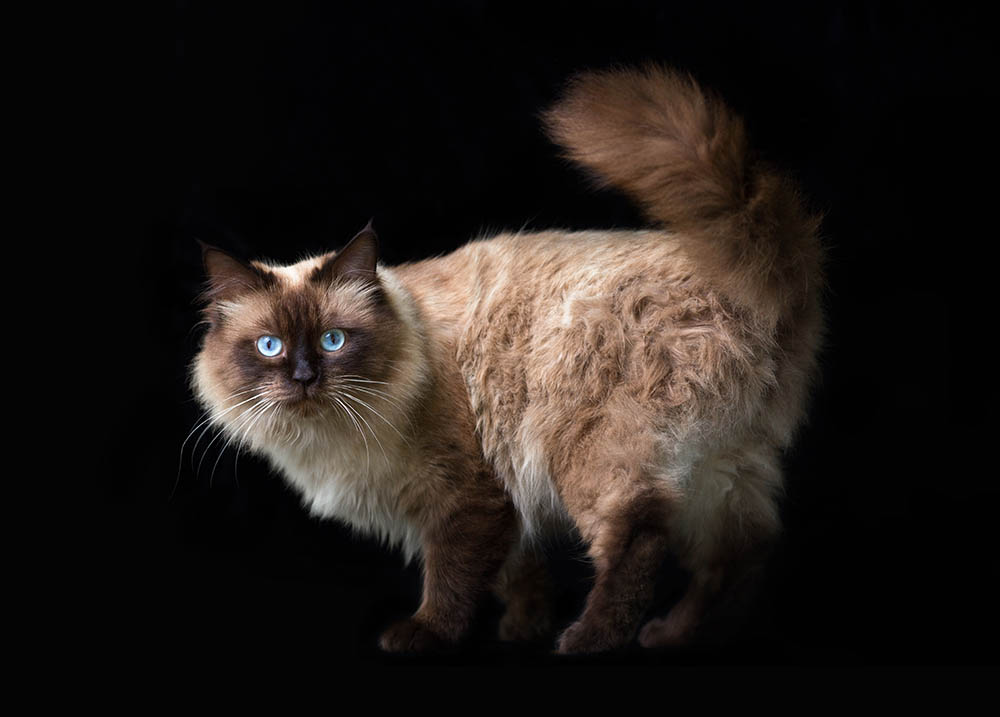Click to Skip Ahead
The golden gecko is an intriguing and attractive pet lizard. This arboreal species is native to southeast Asia and Vietnam. They are nocturnal and spend most of the day sleeping. They are generally undemanding and offer many benefits as pet lizards. The golden gecko is not as popular as some other types of lizards in the pet trade, but they are rapidly gaining attention due to their docile personality and striking colors.
This article will inform you of everything that you need to know when it comes to effectively caring for a golden gecko.

Quick Facts About Golden Geckos
| Species Name: | Gekko badenii |
| Common Name: | Baden’s Pacific gecko |
| Care Level: | Moderately easy |
| Lifespan: | 8–12 years |
| Adult Size: | 5–8 inches (13–15 cm) |
| Diet: | Carnivore |
| Minimum Tank Size: | 20 gallons (80 liters) |
| Temperature & Humidity | 75°F–85°F; 60%–75% humidity |
Do Golden Geckos Make Good Pets?
Golden geckos make good pets for owners who have experience keeping lizards. Their care is straightforward, but due to this animal being nocturnal, there is a limited amount of interaction time. These geckos have an aversion to being handled and are better suited as “watch only” pets rather than interactive pets. They are not aggressive or demanding, though, and can tolerate being handled starting from a young age. This will eventually lead them to become tamer, and they can regularly interact with their owners but still not as much as other pet geckos may allow.
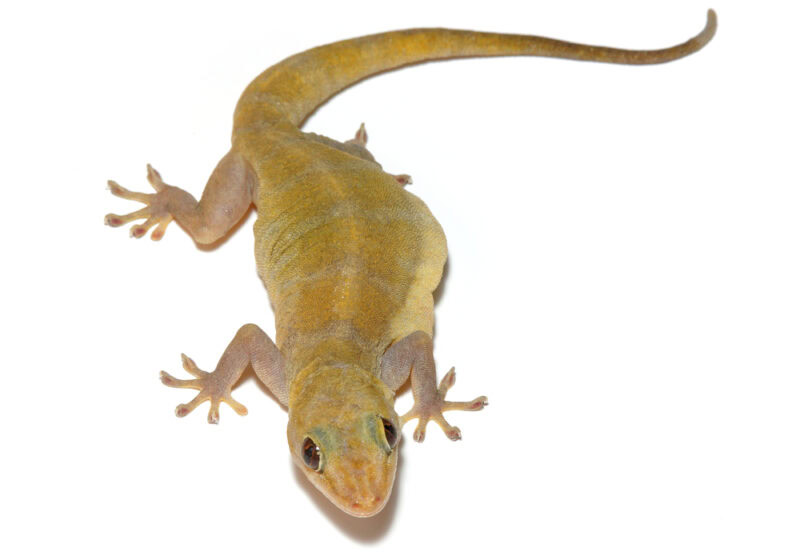
Appearance
Golden geckos get their name from their gold-colored scales. They have soft and scaly bodies with narrow heads. Males and females have noticeable differences in appearance. The male golden gecko grows to an adult size between 7 and 8 inches. Females are smaller and grow to a maximum size of 6 inches. The male has a thicker tail base. The thick knobs surrounding the base of their tail appear as two lumps behind their hind legs.

How to Take Care of Golden Geckos
Tank
A single adult golden gecko should be kept in a minimum tank size of 20 gallons. Height is more important than length, as they enjoy climbing branches and platforms. So, the tank should have plenty of enrichment in the form of large branches with different leaves and coverage extending out. These geckos enjoy hiding among vegetation and will sleep on branches surrounded by leaves. A 29-gallon vertical tank can work for a pair of adult golden geckos, but you should not house two geckos of the same sex because they will fight.
Lighting
Golden geckos do not require UVB lighting like other types of pet geckos. They are nocturnal and should get vitamin D3 from a high-quality diet. Most owners will install infrared lights so they can view their pets at night. The light can be kept on for the duration of the night but not during the day. Experts recommend using UV light in the habitat to ensure that vitamin D3 can easily be taken in if the diet is lacking it.
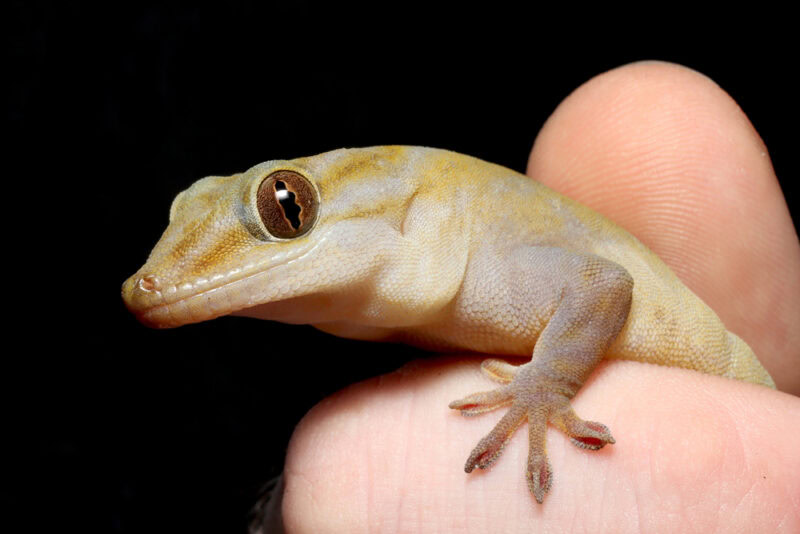
Heating (Temperature & Humidity)
Golden geckos should have a daytime temperature gradient between 75°F and 85°F and a nighttime gradient between 71°F and 76°F, depending on the daytime temperature. It should gradually drop by a few degrees in the evening to replicate the temperature difference in nature. The humidity should be kept up by using a spray bottle with fresh water in it to spritz the tank every few hours. Humidity between 60% and 75% is optimal. You need a humidity gauge and a thermometer to ensure that the levels are kept constant.
Substrate
The substrate should be able to retain moisture well and rarely dry out, as this will help keep the humidity up in the tank. The ideal types of substrates for golden geckos are coconut fiber, reptile bark, or soil. These can be found in the reptile section in the pet store. Avoid using potting solids because they contain inorganic materials that are sharp.
| Tank Recommendations | |
| Tank Type | 20-gallon glass vivarium |
| Lighting | Infrared bulb (optional), UV bulb |
| Heating | Ceramic heating element or reptile bulb in a reflector |
| Best Substrate | Coconut fiber |

Feeding Your Golden Gecko
Golden geckos are carnivores and eat a variety of live prey, including insects like crickets. These should make up most of their diet. They can also be fed waxworms, mealworms, roaches, or butterworms. These should be bred in a pet store environment and not caught in the wild, as wild-caught insects may contain pesticides or parasites. Golden geckos should also be fed small amounts of fruit or flower nectar so they can easily retain valuable sugars.
| Diet Summary | |
| Fruits | 20% of the diet |
| Insects | 80% of the diet |
| Meat | N/A |
| Supplements Required | Vitamin D3 powder sprinkled over food |
Keeping Your Golden Gecko Healthy
You should first ensure that the habitat is large enough to comfortably house the golden gecko. Make sure that all the electrical equipment is working and that it is regulated. The most important aspect to keeping your golden gecko healthy is providing them with a healthy diet and the correct amount of vitamin D3 according to their age and overall health. Provide them with fresh water every day so they can stay hydrated.
Common Health Issues
- Metabolic bone disease (MBD): This is caused by a lack of vitamin D in the gecko’s diet and causes tremors, loss of appetite, and body deformities.
- Impaction: If the gecko eats substrate or other foreign objects, they’re at risk of gastrointestinal impaction.
- Internal parasites: Some food sources contain parasites that can enter the gecko’s body after they’ve been consumed.
- Respiratory infection: This is a common problem in habitats that are too cold and damp. Nasal discharge and lethargy are the main signs.
- Shedding: Sometimes, geckos can have issues shedding if the environment is not humid enough.
- Prolapse: This is when the lower organs fail and stick out of the female gecko’s genitalia or for both sexes, the anus.
Lifespan
These geckos are relatively hardy and can live between 8 and 12 years of age if they are cared for properly. However, it is not uncommon for golden geckos to live less than 8 years if their diet is poor or they have an underlying illness or injury.
Breeding
These geckos should only be bred once both partners are sexually mature, typically when they’re over 1 year of age. Females should be fully grown before breeding so there is less risk of complications during the egg-laying process. They will mate at night. Female golden geckos will lay one or two eggs at a time after a successful mating. The eggs are difficult to remove because golden geckos are egg gluers. They can stick to different surfaces in the habitat and will break and become inviable if they are moved.

Are Golden Geckos Friendly? Our Handling Advice
Golden geckos are not overly friendly. They are quite shy and do not like being handled. They can be tamed if they receive regular interaction from a young age, though. That said, you should avoid forcing your golden gecko to be held, as this can cause unnecessary stress, and geckos are known to jump from their owners’ hands and injure themselves. They are much less friendly than other types of geckos, which is another reason that they are not the best for beginner reptile owners.
Shedding & Brumation: What to Expect
Golden geckos can brumate (which is similar to mammalian hibernation) when they’re over 1 year of age. This occurs when they experience a slowed metabolism. It mainly occurs during the winter months, from December to February, according to their biological clock. Brumation is a natural part of your pet’s annual cycle, and it is healthy.
These geckos will shed more often during their first years of growing, and from then on, it will become less frequent.
How Much Do Golden Geckos Cost?
Golden geckos can be found in exotic pet shops or from qualified gecko breeders. Although these are somewhat rare pet lizards, they are not overly expensive. An average golden gecko can cost anywhere between $40 and $150. This is cheap for a reptile pet, and the initial setup cost is affordable for many people in comparison to most other pet geckos.
Golden Gecko Pros & Cons
- Can be housed in pairs or trios
- Exploratory
- Simple diet
- Nocturnal
- Aversion to human handling
- Shy

Conclusion
Golden geckos are perfect for people who want affordable pets that require less maintenance and cost less than many other pet reptiles. If you keep your reptile in the right conditions and provide them with the proper equipment and diet, you can expect to have a healthy golden gecko for more than a decade.
See Also:
- How Much Does a Leopard Gecko Cost? Price Guide
- What Do Geckos Eat in the Wild & as Pets? Diet & Health Facts
- How Much Are Geckos at Petco? Pictures, Species & Cost Guide
- Best Geckos to Have as Pets (With Info & Pictures)
Featured Image Credit: Dan Olsen, Shutterstock
